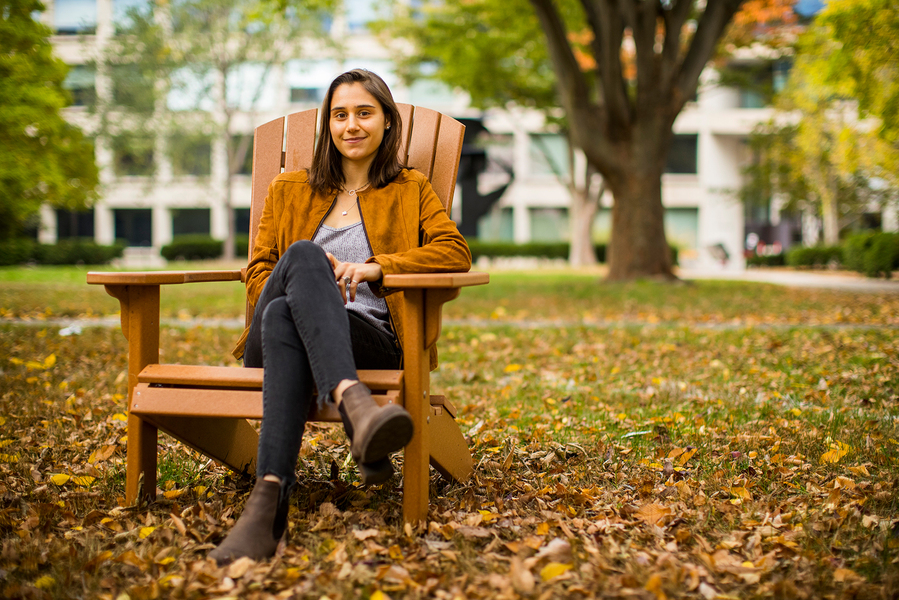PKG Fellowships Alumni Profile: Kiara Wahnschafft (’21)
To read the full story on MIT News, click here.

Kiara Wahnschafft started her first company at age 16. After her classmate passed away from a drunk driving accident, Wahnschafft couldn’t stop thinking about ways technology could have saved a life. With two other students, she built a prototype for a car key that works only after the driver passes a breathalyzer test. Wahnschafft went on to create a company called SafeStart Technologies, ultimately patenting the product and winning several competitions.
The experience was Wahnschafft’s introduction to a unique way in which she could improve the lives of those around her. “I was always looking for an artistic outlet as a kid,” she says. “When I discovered programming, it was like I finally had this blank canvas on which to freely create potentially meaningful solutions.”
Wahnschafft arrived at MIT with the desire to continue pursuing product engineering for social entrepreneurship. She experimented with mechanical engineering classes through MIT D-Lab, a program focused on equitable design and development, and soon found herself surrounded by startups working to alleviate poverty and improve living standards around the world. One company, called Sanergy, stood out to her for its innovative approach toward improving sanitation in urban settlements. Through a PKG Center fellowship, she traveled to Nairobi, Kenya, and interned at Sanergy during Independent Activities Period (IAP) in January, 2020.
On her first day, Wahnschafft went with co-workers to the settlements where the company’s sanitation units were being built. Seeing the systems and meeting those operating them in person, as well as speaking with new co-workers and friends who had grown up in Nairobi, gave her a much deeper understanding of the challenge. While her engineering work focused on improving sanitation conditions, she learned more about the systemic reasons why settlements were expansive in the first place.
One of these such issues was job instability. Upon returning to MIT, Wahnschafft dove into an economics research opportunity focused on evaluating a program that teaches Kenyan workers skills needed for digital work. The findings revealed that the program helped to improve wages, employment, and life satisfaction. Wahnschafft then shared her findings with the program’s managers, providing them quantitative reasons to expand their work. The experience introduced her to an evidence-based method for tackling societal challenges.
To read Kiara’s PKG IAP Fellowship reflections from 2020, click here.
Tags: Fellowships IAP 2020, Kenya, PKG Alumni, PKG Fellowships, PKG IAP Fellowships, Tech for Good
